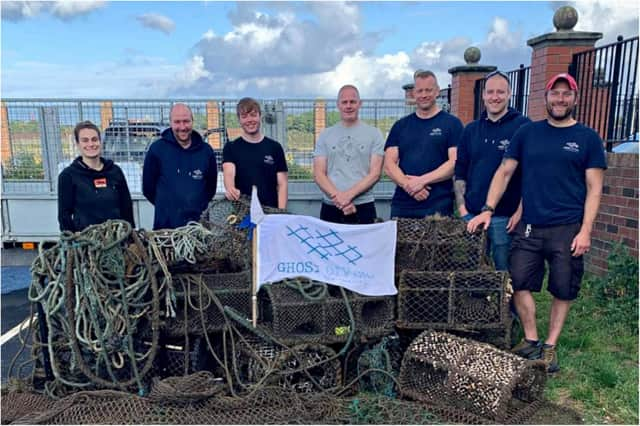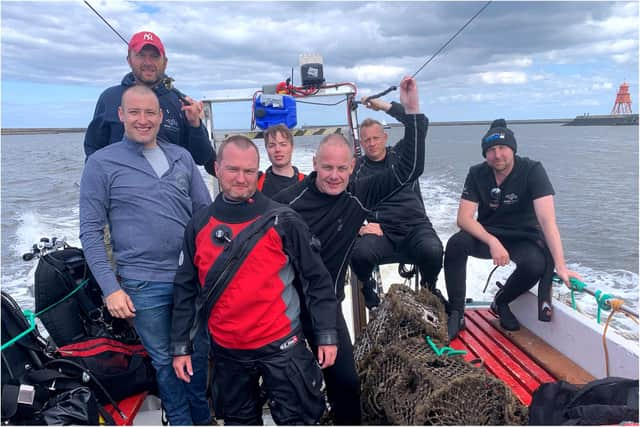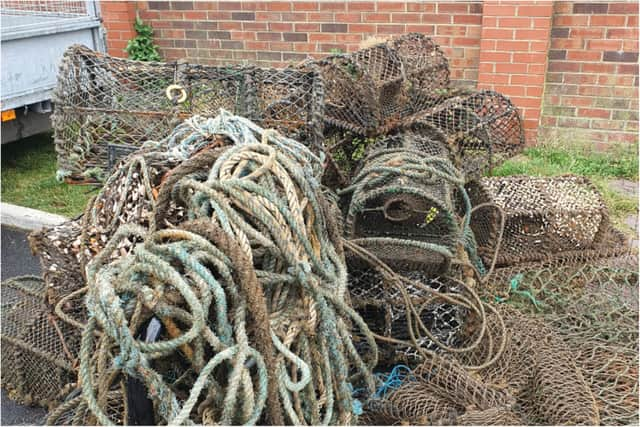'Ghost Diving' volunteers divers help wildlife by clearing deadly netting and lobster pots from shipwrecks off the North East coast


The team from Ghost Diving UK visited two locations, including the wreck of the South Shields-built SS Mars, a Swedish steam engine boat which sank in 1939 after hitting a German mine, costing seven lives.
At a depth of around 100ft, they retrieved 40 square metres of netting which weighed 125kg, manually lifting it to the support boat and on a second dive, at the wreck of the nearby SS Hanne, the team retrieved 15 disused lobster pots.
Advertisement
Hide AdAdvertisement
Hide AdBoth the disused netting and lobster pots, known as ‘ghost nets’, are deadly to sea life.


The event was coordinated by technical diver Duncan Simpson, from Ghost Diving UK, and supported by Hyundai UK as part of its new partnership with Healthy Seas.
The team set off from Royal Quays Marina in North Shields.
Duncan said: "We're a small chapter of local volunteers working with Healthy Seas. The nets are catching aquatic life which brings in other aquatic life to feed on it and they get snagged in the net and they then die.
"Until we break the cycle and remove the net, it will just continue. We retrieve the net, bring it back to the marina and then it is recycled for another purpose, removing the threat from the sea. It is really important we remove these from the sea. They'd just stay there forever, carrying on catching and carrying on killing.”


Advertisement
Hide AdAdvertisement
Hide AdHealthy Seas is a global organisation which works with teams of volunteer divers from the charity organisation Ghost Diving, to recover abandoned fishing nets, known as ‘ghost nets’, from coral reefs and shipwrecks.
Ashley Andrew, MD of Hyundai UK, said: "For us to have this partnership and demonstrate our commitment to environmental, societal and sustainability issues is very important to us and we're really happy to be working together with Healthy Seas.
Working with a network of partners, Healthy Seas ensures plastic waste retrieved from the dive on August 15 can be recycled into new materials in a circular economy.